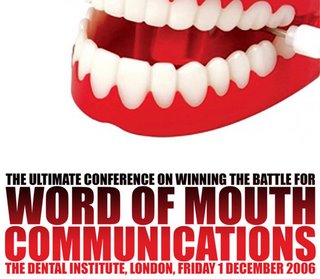 Hugh MacLeod over at Gaping Void has been asking for mini-manifestos – or Change The World in 500 Words - and has received quite a few on a wide range of subjects.
Hugh MacLeod over at Gaping Void has been asking for mini-manifestos – or Change The World in 500 Words - and has received quite a few on a wide range of subjects.
Mine is based on the Ten Commandments and you can read it below.
I was very gratified to see than my missive inspired Hugh to do a cartoon on the back of a business card on the content.
Ten Commandments Manifesto
I like the Bible – it’s a great piece of literature – but needs some contemporary context for Hugh's manifesto concept. So here’s my manifesto based on Exodus 20:1-17
1. God may, or may not exist – you decide. Does it matter if you believe in God? No, but if you do believe, believe in a good one.
2. Don’t mess about with symbols – Swastikas, Crucifix, Crescents, it all ends bad. Avoid them
3. If you mess with any of the above – you’re fucked.
4. Best to forget a Supreme Being, chill out, have a beer, scotch or claret, and treat everyone the way you would like to be treated.
5. Get a life and concentrate on being nice to others even if other people are assholes.
6. Stop being stupid – you’re not as smart as you think you are. But remember neither is your boss nor are all the other people who tell you they are smarter than you.
7. Put one day aside a week for your self – your deserve it.
8. Don’t be a slave and don’t make slaves of others.
9. If your Mum and Dad love you – give it back in spades.
10. Don’t do any bad stuff like murder, adultery, theft, lying, or fucking a donkey.
By and large life is good, people are good. Keep a song in your heart and the truth on your tongue.

 Hugh MacLeod over at Gaping Void has been asking for mini-manifestos – or Change The World in 500 Words - and has received quite a few on a wide range of subjects.
Hugh MacLeod over at Gaping Void has been asking for mini-manifestos – or Change The World in 500 Words - and has received quite a few on a wide range of subjects.










